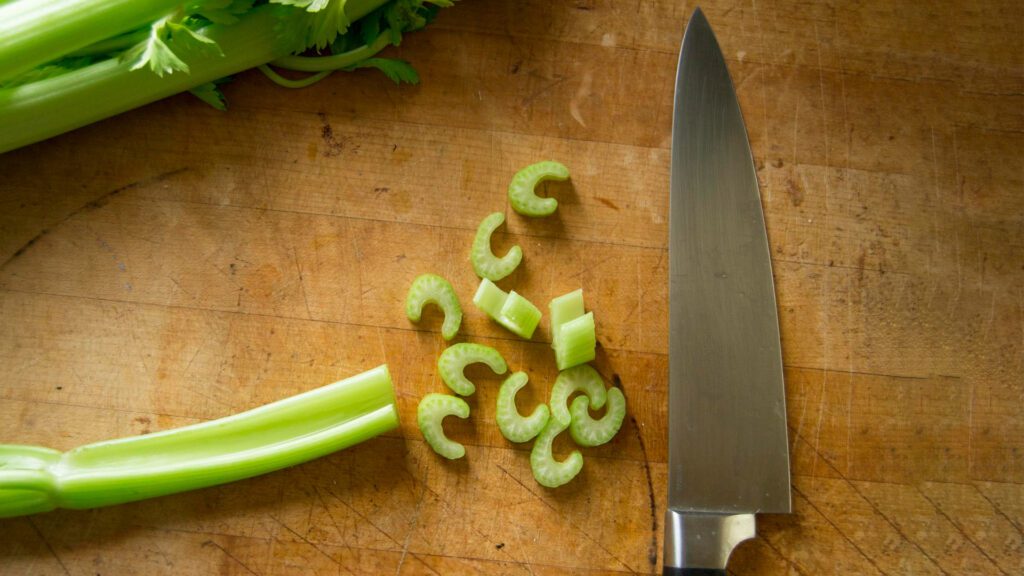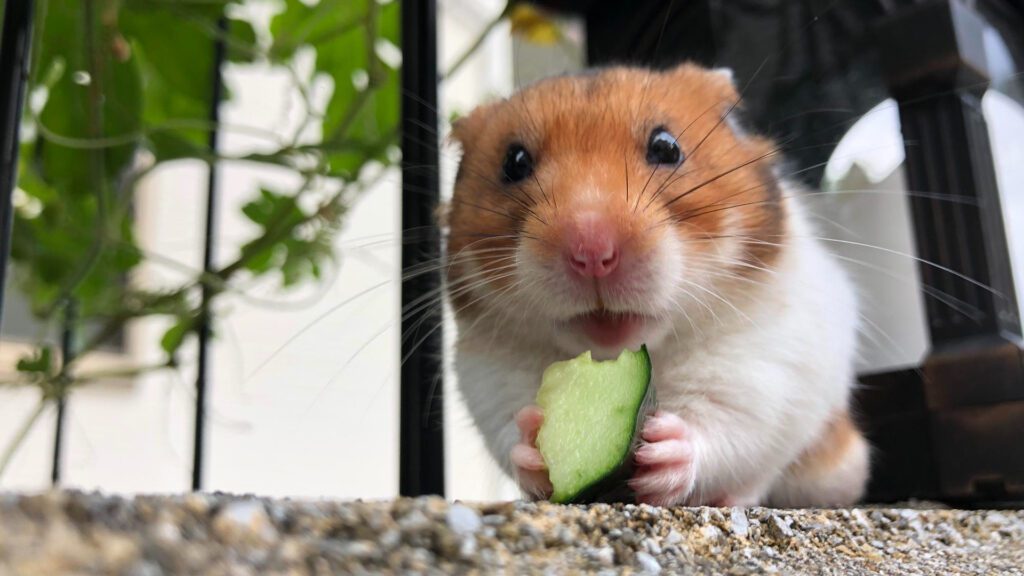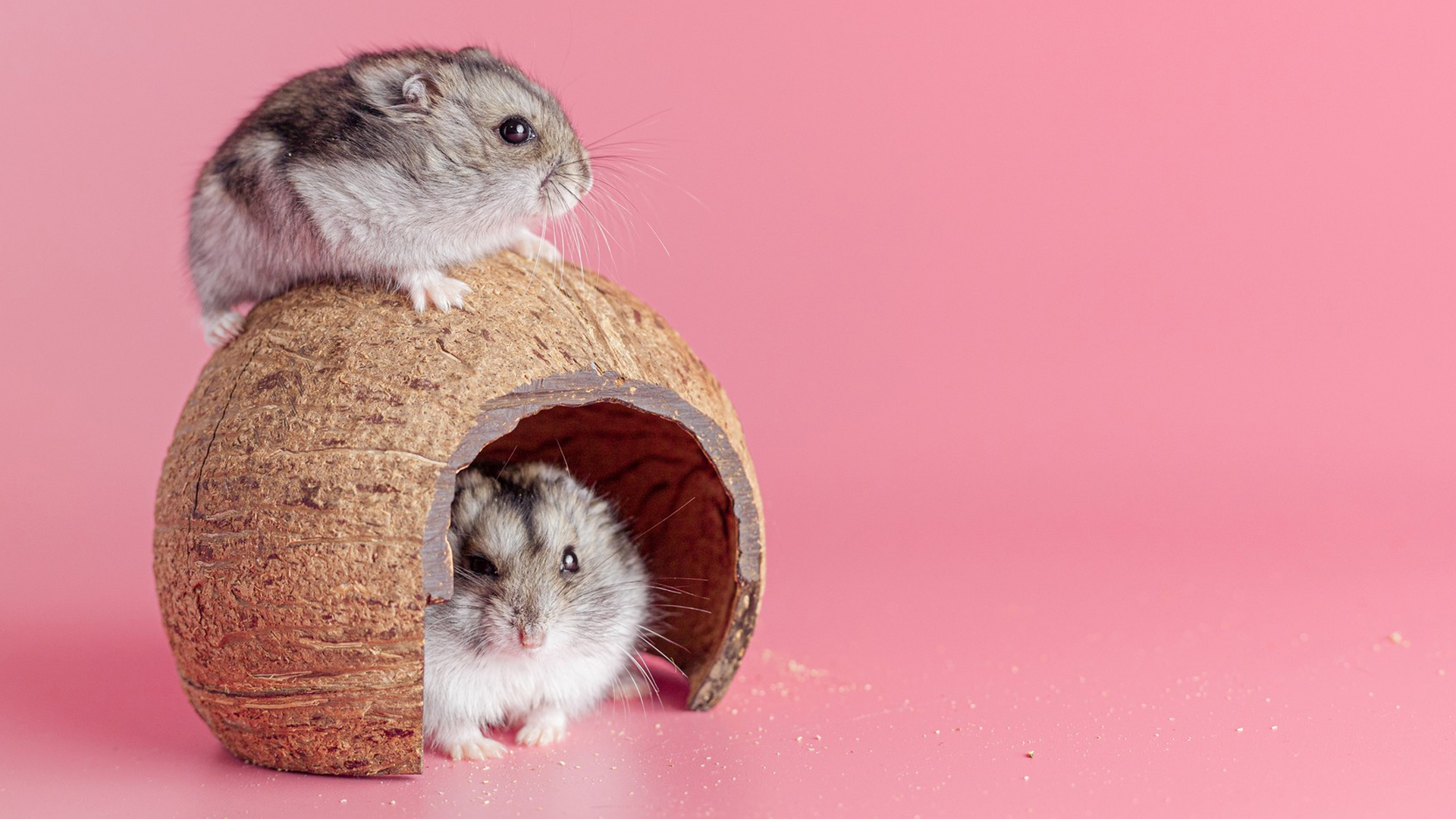When you’re munching on some crunchy celery, you might glance over at your furry friend and wonder, “Can my hamster eat celery like I do?”
Hamsters need a variety of foods to stay happy and healthy, including fresh veggies, but is celery one of them? Let’s find out!
Can Hamsters Eat Celery?
Yes, hamsters can eat celery, but in moderation. As hamsters are omnivores, they require proteins and fiber to have a balanced diet for their overall health.
However, this crunchy vegetable cannot be the only food your pet eats. While hamsters can enjoy vegetables, they don’t necessarily need them unless given as a treat.
Remember, treats should only make up a small part of their diet. The hamster diet should include fresh pellets, rodent blocks, and hay.
Why Should You Give Celery To Your Hamster?
Fruits and vegetables can be a great addition to your hamster’s diet. Read this section to learn about several health benefits!
Hydration: Celery has a high water content, which helps keep your hamster hydrated.
Low in Calories: It’s a low-calorie nutritious treat, making it a healthy snack.
Fiber: The fiber in celery aids digestion and helps prevent constipation.
Vitamins: Celery contains vitamins A, C, and K, which support overall health.
Dental Health: Chewing on celery can help keep your hamster’s teeth healthy and trimmed.
Variety: Adding celery brings diversity to your hamster’s diet, making mealtime more interesting.
4 Major Risks of Feeding Celery To Hamsters
Giving your hamster too much celery can cause severe harm to their digestive system. Here are a few other risks such as:
High Water Content: Celery is mostly water, which can cause diarrhea due to its high water content.
Choking Hazard: Celery’s long, stringy texture can pose a risk. Hamsters may struggle to chew it properly, especially if they are small or older.
Fiber Overload: Celery’s high fiber content may lead to bloating or gas, causing pain.
Nutritional Imbalance: Celery lacks the key nutrients that hamsters need. Relying too heavily on it can lead to deficiencies in their diet.
Things To Keep In Mind Before Feeding Your Hamsters

Are you going to feed your hamster celery today? Well, read this section before doing so!
Wash Thoroughly
Always rinse celery under running water to remove pesticides and dirt. Clean food is safe food.
Cut The Celery Into Small Pieces
Chop celery into bite-sized pieces to prevent choking hazards. Feed in small amounts and gradually increase after a month or two.
Avoid The Leaves
Celery leaves can be tough for hamsters. Stick to the stalks for easier chewing.
Monitor The Reactions
When introducing celery, watch for any signs of upset stomach. If your hamster shows discomfort, stop feeding it.
Balance With Other Foods
Celery should not replace your pet’s main diet. Instead, it should be included as part of a balanced mix of veggies and pellets.
Freshness Matters
Only feed fresh celery. Wilted or spoiled food can harm your pet.
What Other Foods Can Hamsters Eat?
Here are some other foods that hamsters might be able to eat:
Can Hamsters Eat Cheese?
Yes, hamsters can eat cheese. Although cheese is not a natural part of their diet, too much can upset their stomachs. A small piece of cheese occasionally can be a tasty treat.
Choose soft cheeses like mozzarella or cottage cheese. Avoid hard cheeses, as they can be too salty. Always remove any uneaten cheese after a few hours to prevent spoilage.
Can Hamsters Eat Cucumber?

Yes, hamsters can eat cucumbers. Cucumbers are low in calories and prevent dehydration. However, avoid giving too much at once. A small piece a few times a week is perfect.
Can Hamsters Eat Broccoli?
Yes, hamsters can eat broccoli. It is rich in vitamins C and K, which support hamster health.
Introduce it slowly to the diet, as it can impact the hamster’s delicate digestive system.
Can Hamsters Eat Grapes?
Yes, hamsters can eat grapes. Grapes are safe for hamsters and can be a tasty treat. However, they are high in sugar, which can lead to health issues if fed too often.
Note: Consult your veterinarian before changing your hamster’s diet.
Which Other Vegetables Can Hamsters Eat?
Hamsters can enjoy a variety of vegetables in moderation. Here are some safe options:
Carrots: Rich in beta-carotene, carrots can be given to your pet hamster.
Spinach: This leafy green is nutritious, but too much can cause digestive issues.
Zucchini: Soft and easy to chew, zucchini is a great treat.
Pumpkin: Small amounts are fine. It’s rich in fiber and helps with digestion.
Human Foods That Are Harmful For Hamsters
Though hamsters should rely on their pellet diet, they still enjoy human food. But not all food is hamster-safe, especially:
Chocolate: Contains theobromine, which is toxic to hamsters.
Onions and Garlic: These can cause digestive issues and damage red blood cells, leading to anemia.
Citrus Fruits: Oranges and lemons can upset a hamster’s stomach and cause diarrhea.
Avocado: Contains persin, which is harmful to many animals, including hamsters.
Nuts and Seeds: While some are okay in small amounts, many are high in fat and can lead to obesity.
Now You Know Which Foods Are Safe For Hamsters
Feeding hamsters requires careful consideration of their immune system and dietary needs. While romaine lettuce can be shared with your hamster, Iceberg lettuce is a big no when it comes to water content.


